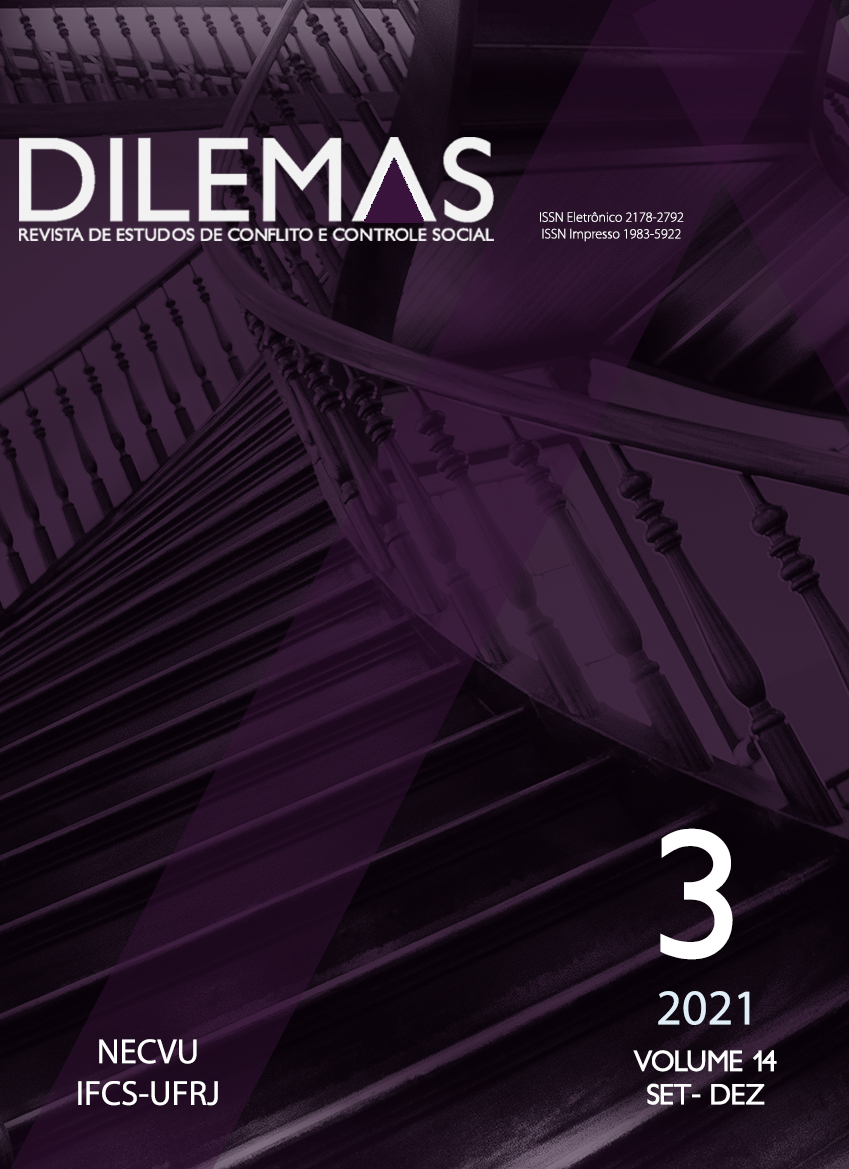Identify and Discriminate: Notes about Fortaleza’s Criminal Policy in the Early Decades of the 20th Century
DOI:
https://doi.org/10.4322/dilemas.v14n3.34129Keywords:
criminal policy, criminology, dangerous classes, scholars, stateAbstract
This paper aims to analyze the criminal policy and its foundations in Fortaleza at the beginning of the 20th century, highlighting how the Lombrosian criminal doctrines fostered discourses that associated crime with misery and vice, as well as the discussion of surveillance and social control mechanisms aimed at reordering the urban and social space. In this sense, we intend to analyze how the criminal policy was constituted from the appropriation of ideas from the modern criminology, developed by the intellectual and political elite, in addition to highlighting the relationship that the state maintained with the poor contingent of the population, treated as “dangerous classes”.Downloads
Published
2021-09-16
Issue
Section
Articles
License
Upon submitting a text, the authors retain copyright and grant DILEMAS - Revista de Estudos de Conflito e Controle Social the right of first publication, with the work simultaneously licensed under the Creative Commons License type attribution BY (CC-BY), which permits sharing of the work with acknowledgment of authorship and initial publication in this journal.

